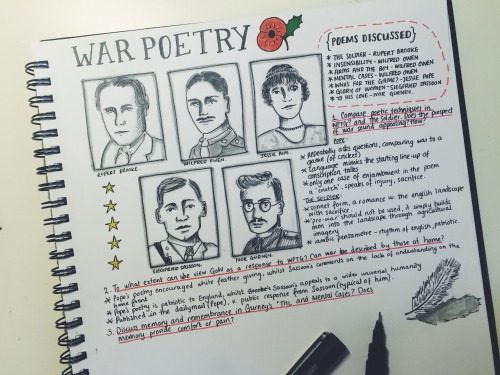#study spo

Hello everyone,
Here I am after another exam session. As usual, I would like to share with you my study method to help someone who is struggling with the same exams. Also, I would appreciate it if you gave me your feedback and advice to improve my approach.
So, let’s start.
Microbiology is a unique subject, and many students have difficulties with it. It might seem all about mnemonics, but it is fundamental to understand the mechanisms at the base of infection, clinical manifestations, diagnosis and therapies of viruses, bacteria and parasitics.
First of all, I thinkattending lessonsis vital. Books are full of notions that might be confusing and having an idea of what to focus on can help, at least at the beginning. I went to classes, took notes, and tried to understand the basics of microbiology.
After classes, I made mind maps trying to organize notions: a branch for microorganism’s structure, one for the cycle of replication, one for symptoms and pathogenesis, one for diagnosis and one for prophylaxis and therapies. I used X Mind for my digital maps, and I find this app extremely efficient (and also, it is free).
Behind having assimilated these basic notions, I read the book and inserted more details on my map. Integrating with the book was fundamental to understanding the mechanisms of pathogenesis and infection. Also, adding information can make it easier to remember the essential ones.
When classes were over, I started reading all the material again and used my mnemonics techniques. I think it is useless to memorize notions at the beginning of the study because, sometimes, understanding the concept makes it easier to learn it. For example, knowing the mechanisms of action of an antibiotic will help to remember which bacteria can defeat. Anyways, some notions (such as the name of some antibiotics or antiviral) need to be learnt by heart. For this purpose, mnemonic techniques (acronyms, short stories, etc.) are a great help.
Next, I started recalling all the topics many times. Trying to explain the matters out loud helped me comprehend whether I had learnt them or not.
Last, I recalled all the subjects with my usual studybuddy. This part is essential because she always knows something that I do not and vice versa.
Also, we do all the previous exams together. It may be unfair, but the best way to get a high score on the test is to understand what the professor focuses on.
I have to confess that I studied the day before the exam. By the way, it was a complex situation. Generally speaking, I advise resting before an exam to be relaxed and stress-free during the test.
And, that’s it! Let me know whether you agree with my study method or you would change something. Also, good luck with your studies


October 18th 2021
Love the campus of my university

We lost another brother

Well, only the elephant is missing.

This is so me! I think engineers (and future engineers) can relate.


222/366
I’m done with one month of OB and I’m starting my pediatrics rotation tomorrow!!! I’m honestly excited, scared, and anxious all at the same time. I loved pediatrics back in clerkship and I honestly hope I’ll feel the same way.
I have a lot of backlogs in my asks right now and I’ll be answering them one by one in a bit! Hehe
ig:studyingdoc
In my previous post about how to choose a suitable teacher/tutor on italki, I’ve said that you need to have a certain goal in your head to achieve, right?
✨ GOALS ✨
So for me it looks like this:
I knew I wanted to go through a textbook with someone
I knew I wanted to learn how to talk about news
I knew I wanted to learn how to open my mouth more because my speaking sucks.
_ _ _ _ _ _ _ _ _ _ _ _ _ _ _ _ _ _
✨ How do my lessons look like? ✨
Textbook lessons
BEFORE LESSON
I have homework to do (each lesson I need to write an essay - with each essay they are getting harder lol)
before the lesson I check all of the new words, I try to learn them, create new sentences with them
I try to understand grammar by myself
I do all exercises in the textbook
DURING LESSON
at the beginning of class I read my homework and we talk about my mistakes
later I read at loud the text (to work on my tones and pronunciation, reading flow)
after I finish reading the text, I talk with the tutor this text (do I understand, I try to summarise it in Chinese and answer some questions)
we go through exercises - she tells me what kind of mistakes I made
if I don’t understand grammar - I ask for help and we work on it
_ _ _ _ _ _ _ _ _ _ _ _ _ _ _ _ _ _
News lessons
BEFORE LESSON
I got the news/article few days before the lesson, so I can work on it
I read it, find new words and write them down
if there are things I can not find in the dictionary or they are too hard to understand - I colour the text
(currently news/articles are based on my interest)
DURING LESSON
at the beginning I talk about all my questions and doubts
later - we simply talk about the news (the teacher is preparing the questions or tasks for me to do - each time different, depends on the topic)
_ _ _ _ _ _ _ _ _ _ _ _ _ _ _ _ _ _
Speaking lessons
I simply got some topics I want to talk with someone in Chinese and I ask 1-2 days before “can we talk about (traveling/photography/fashion)” and we simply talk about the topic I choose
~~~~~~~~ ️ ~~~~~~~~

